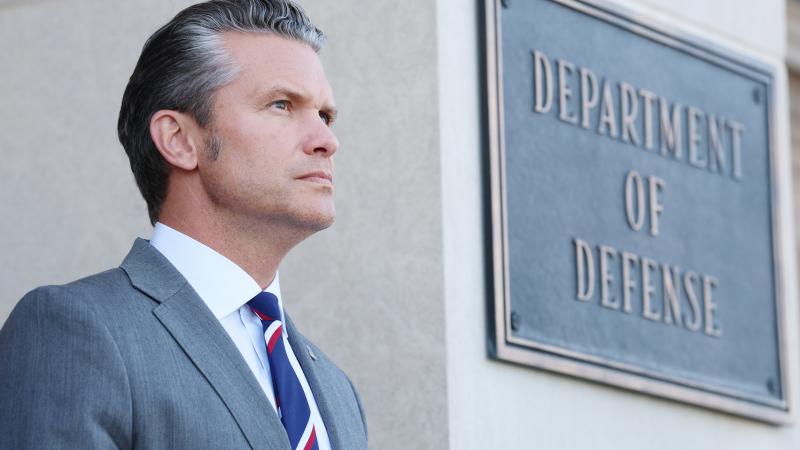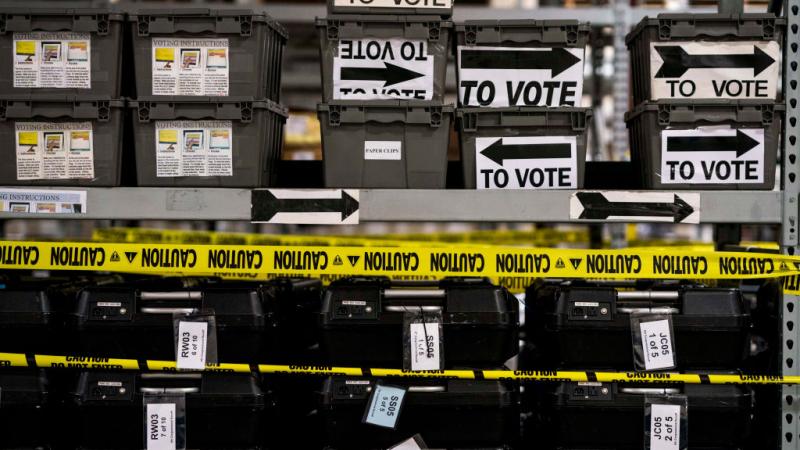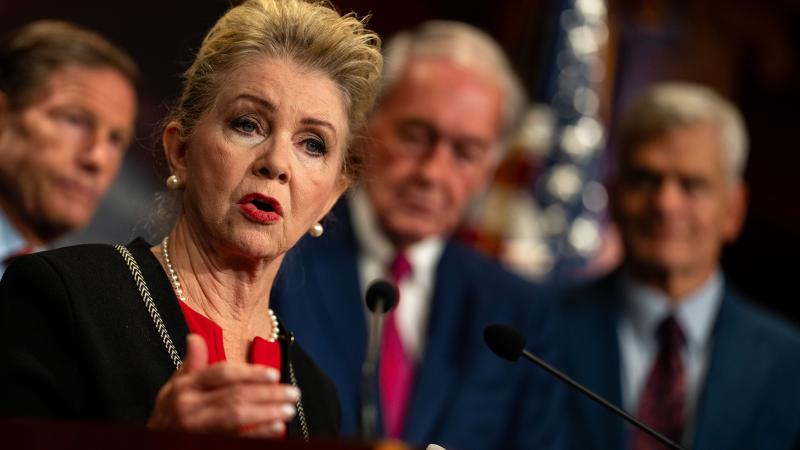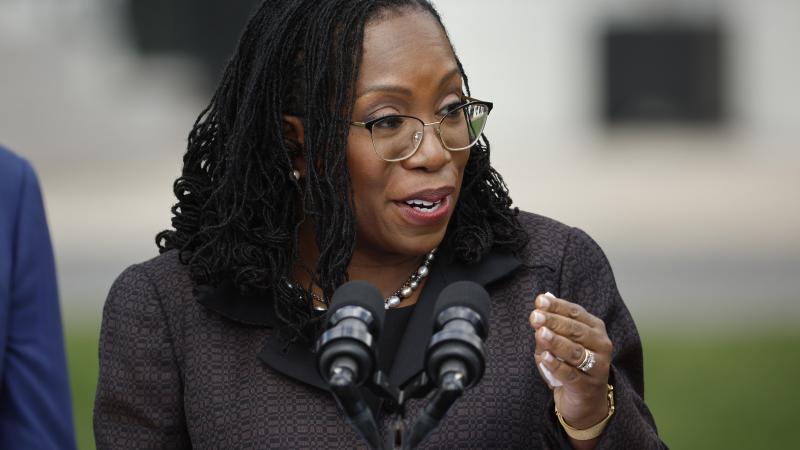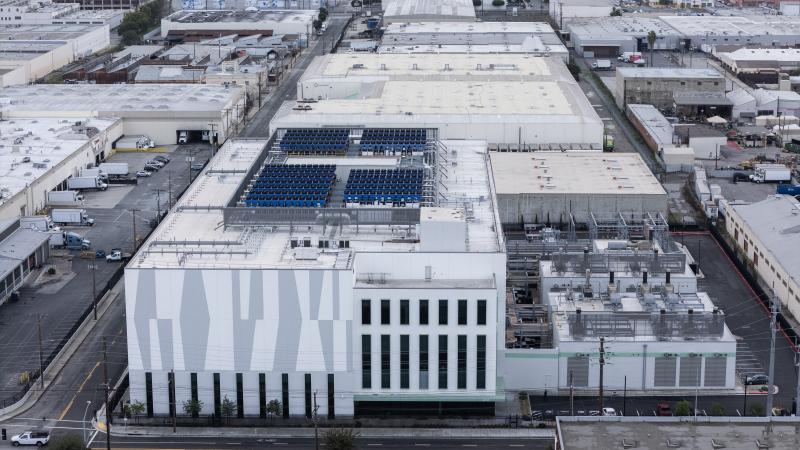Permanent settlement in Gaza is far from secured, even after success of hostage release
Hamas’ actions after the Israeli withdrawal have created tensions amid the ceasefire and warning signs that the groups may fail to uphold its commitments.
The ceasefire and hostage deal between Israel and Hamas are only the beginning in Gaza, and there are warning signs that the next steps to achieve the lasting peace envisioned by President Donald Trump are far from secure.
The president this week has been forced to warn Hamas that he would permit Israel to resume its fight against the terrorist group if it violates the ceasefire, just days after a trip to the Middle East celebrating the end to hostilities and the release of 20 Israeli hostages.
The president was responding to reports of violence in the Gaza Strip and a failure by Hamas to fulfill its full commitments under the ceasefire agreement.
After Israel signed on to the plan and began drawing its forces back to an agreed-upon line of control, Hamas fighters have quickly returned to the formerly occupied areas, bringing with them weapons and a grudge against rival Gazan factions that threaten the terrorist group’s iron-fisted control of the Palestinian enclave.
Various reports indicate that Hamas, which is a U.S. designated terrorist group, has carried out executions and attacks against rival groups in several areas in the Gaza Strip in an attempt to reassert its control after the Israeli withdrawal. The terrorist group is also reportedly targeting those accused of collaboration with Israel during its occupation.
There are other warning signs that Hamas remains reluctant to adhere to the peace terms. Hamas struggled to turn over the bodies of deceased hostages to Israel on schedule. After initially returning far fewer remains than originally promised, it only moved to return more after Israel threatened to cut humanitarian aid it promised to send to the enclave as part of the ceasefire.
Experts say the terror group’s actions could endanger the long-term success of President Trump’s 20-point peace plan between Israel and the Palestinians in Gaza, which both Israel and the United States have agreed involves Hamas disarming and ceding power to a new transitional authority.
“Hamas’s conduct since the ceasefire took effect suggests it has no intention of complying with any disarmament clause. Instead, its actions on the ground indicate the opposite: Hamas is disarming its rivals and consolidating control across the Gaza Strip,” Senior Research Analyst at the Foundation for Defense of Democracies and terrorism expert Joe Truzman told Just the News.
Former CIA analyst and Trump national security official Fred Fleitz agreed, suggesting the terrorist group’s actions since the ceasefire are sending the message they might not be serious about disarming and handing over control.
“There are reports that Hamas fighters are moving into areas of Gaza evacuated by Israel. Those fighters have to turn over their weapons and control of the areas they're occupying to this international force. I hope they're not sending the message that they don't plan to leave and they don't plan to disarm,” Fleitz told the John Solomon Reports podcast earlier this week.
“Now this deal can deal with that, if that's what they're going to do. He is going to wipe them out, and we will remake and rebuild Gaza without them, but that's certainly not the preferred option,” he continued.
After the Israeli withdrawal from the majority of Gaza began last week, violent clashes have broken out across the strip as Hamas attempts to exert its control over the areas previously occupied by the Israeli Defense Forces.
Videos of one incident in particular have circulated on social media and in several international outlets depicting a public execution conducted by Hamas fighters. It is not clear what the victims were accused of doing.
Official statements only hint at their identities. The Palestinian Resistance Factions—which is an alliance between Hamas and other aligned groups in the strip—touted the “security campaign being carried out by the Ministry of Interior and National Security in Gaza to enforce the law and pursue those who violate it, including collaborators, mercenaries, thieves, bandits, and those cooperating with the Zionist enemy throughout the Gaza Strip.”
The return of Hamas fighters has led to confrontations with Gazan families, some of whom Hamas considers rivals to their rule. For example, the Doghmush family, members of which were prominent in the previous Gazan administration overthrown by Hamas in 2007, confirmed that its members had been attacked by Hamas fighters for alleged collaboration with Israel. The family, in a statement, said that 28 of its members were killed by Hamas after the Israeli withdrawal.
The family said it was “shocked by a distressing internal campaign targeting our innocent sons, involving killing, intimidation, torture, and burning of homes with their residents inside, without any justification and under false pretexts that bear no relation to reality,” according to CNN. The family also said that it had “rejected” all requests from Israel to collaborate with its occupation.
In addition to the escalating violence, Hamas also appears to be “testing the limits” of the ceasefire by failing to return all the bodies of hostages it promised, Truzman said.
“It has already delayed the return of several bodies and even handed over one that did not belong to a hostage. Now, Hamas claims it needs more time to locate the remaining corpses. It’s a development certain to anger Israeli officials. While it is plausible that some remains may take time to recover, the number of deceased hostages returned so far is suspiciously low,” Truzman told Just the News.
Despite returning all remaining living hostages to Israel, the terrorist group agreed that it would also return the bodies of the 28 deceased hostages in its possession as part of the ceasefire agreement. However, by the time of this writing, the group had only returned eight to Israel.
Israeli officials said that they had decided to reduce aid shipments to the strip, only permitting half the agreed-upon number of aid trucks into the enclave starting on Wednesday, and delayed plans to open the southern border with Egypt because Hamas had violated the terms of the deal by withholding the remaining bodies, Reuters reported.
Truzman said “Hamas’s behavior suggests it is deliberately creating friction to signal its dissatisfaction with the current agreement.”
President Trump, responding to the reports of violence and tensions over the return of hostage remains, said that the group would be expected to disarm soon or face retaliation from Israel with U.S. support. “They said they’re going to disarm and if they don’t disarm, we will disarm them,” Trump told reporters on Tuesday.
The president reiterated the threat on Wednesday in an interview with CNN. He told the outlet that Israel could resume fighting in Gaza “as soon as I say the word.”
“What’s going on with Hamas – that’ll be straightened out quickly,” he added, per the outlet.
Israeli Prime Minister Benjamin Netanyahu has long maintained that the conflict cannot permanently end until Hamas disarms and relinquishes control of the Gaza Strip. Israel views an armed Hamas on its border as a threat, especially after the deadly Oct. 7, 2023, terrorist attack by the group that sparked the war.
“Currently, I do not think Israel has any intention to restart the war. It does not want to be viewed as a reason why President Trump’s ceasefire plan collapsed,” Truzman told Just the News. “Thus, I think Israel will do everything in its power to ensure the ceasefire works and all the bodies are returned without having to carry out military action.”
But, he said that if the deal falls apart and a partial compromise emerges where Hamas is allowed to keep its arms and maintain control of Gaza, that it would “merely freeze, not resolve,” the overall conflict.
“A weakened but still armed Hamas would inevitably rebuild, setting the stage for renewed hostilities,” Truzman concluded.
The Facts Inside Our Reporter's Notebook
Links
- just days after a trip to the Middle East celebrating
- carried out executions and attacks against rival groups
- struggled to turn over the bodies of deceased hostages
- Senior Research Analyst at the Foundation for Defense of Democracies
- violent clashes have broken out across the strip
- touted
- its members had been attacked by Hamas fighters
- according to CNN
- decided to reduce aid shipments
- Trump told reporters on Tuesday
